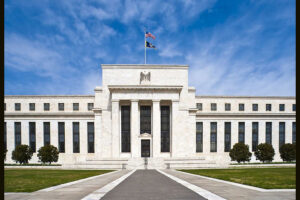Major Central Banks Try To Stem Contagion After Credit Suisse Rescue

World’s major central banks announced a joint effort to prevent the banking crisis from spreading after the Swiss bank UBS decided to acquire the troubled rival Credit Suisse in a deal brokered by the Swiss authorities.
Leading central banks including the Federal Reserve, the European Central Bank, the Bank of Canada, the Bank of England, the Bank of Japan and the Swiss National Bank announced a coordinated action late Sunday to boost the provision of liquidity via the standing U.S. dollar liquidity swap line arrangements.
Central banks decided to increase the frequency of US dollar operations with 7-day maturity from weekly to daily from March 20.
These daily operations will continue at least through the end of April, a joint statement from the central banks said.
“The network of swap lines among these central banks is a set of available standing facilities and serves as an important liquidity backstop to ease strains in global funding markets, thereby helping to mitigate the effects of such strains on the supply of credit to households and businesses,” the statement said.
The swap lines were first introduced in 2007 during the global financial crisis and made standing arrangements in 2013.
ING economist Padhraic Garvey saw this increase in frequency of access to the US$ swap line as precautionary. “It does not solve banking problems though,” the economist said.
The latest banking crisis has raised the question whether the centrals banks were too aggressive in raising interest rates in their battle against runaway inflation.
On Sunday, UBS agreed to take over the Credit Suisse in an all-share deal worth $3.25 billion under pressure from the Swiss authorities.
Credit Suisse, a 167-year old bank and the second largest in Switzerland, had been facing issues due to scandals, irregularities and management troubles for a long time.
The bank was embroiled in a crisis of confidence during the whole of last week after its main shareholder Saudi National Bank refused to invest more.
This came close on the heels on the collapse of the Silicon Valley Bank and Signature Bank in the US during the weekend before last. The lender turned to the Swiss National Bank for help and the central bank gave a $54 billion credit line. However that backstop was not enough to prevent a rout in bank shares.
As Credit Suisse was among the systemically important banks in the world, the Swiss authorities approached UBS for help. The take over was agreed with the support of the Swiss federal government, the Swiss Financial Market Supervisory Authority FINMA and the Swiss National Bank.
“With the takeover of Credit Suisse by UBS, a solution has been found to secure financial stability and protect the Swiss economy in this exceptional situation,” the Swiss central bank said in a statement.
Meanwhile, America’s 11 largest banks including JPMorgan Chase, Bank of America, Citigroup, and Wells Fargo came together to rescue the First Republic Bank last week. They pumped $30 billion funding into the troubled lender.
In the UK, the Bank of England and Treasury persuaded the HSBC Bank UK to take over the UK unit of the Silicon Valley Bank for a symbolic amount of GBP 1 in a rescue deal.
Source: Read Full Article
